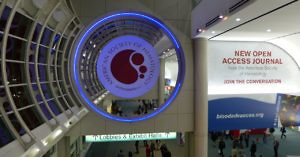Promising new agents to watch out for in Chronic Lymphocytic Leukemia
Over the last five years the face of the chronic lymphocytic leukemia (CLL) landscape has changed quite dramatically with the advent of new approvals in several categories. These include anti-CD20 antibodies, BTK inhibitors, PI3K inhibitors and apoptotic Bcl–2 inhibitors.
 In yesterday’s wide ranging interview we explored in-depth how these therapies are impacting the broader landscape, as well as emerging trends in how these regimens might be used.
In yesterday’s wide ranging interview we explored in-depth how these therapies are impacting the broader landscape, as well as emerging trends in how these regimens might be used.
In Part 2 of the ongoing series, we spoke with another CLL expert and explored promising new and earlier agents in development for a different perspective on how outcomes might be improved further.
Subscribers can log in to learn more insights
This content is restricted to subscribers

 In this initial post, I’m sharing my first impressions of what may be some hotly contested trials at ASH16 in San Diego, as well as a few intriguing abstracts with combination data that caught my attention.
In this initial post, I’m sharing my first impressions of what may be some hotly contested trials at ASH16 in San Diego, as well as a few intriguing abstracts with combination data that caught my attention. First off, the FDA approved AbbVie/Genentech’s venetoclax, now known as Venclexta, in a subset of CLL patients with 17p deletions. These patients have a historically poor prognosis and the approval goes some way to addressing the high unmet medical need.
First off, the FDA approved AbbVie/Genentech’s venetoclax, now known as Venclexta, in a subset of CLL patients with 17p deletions. These patients have a historically poor prognosis and the approval goes some way to addressing the high unmet medical need. What questions are BSB readers sending in to us this month?
What questions are BSB readers sending in to us this month?